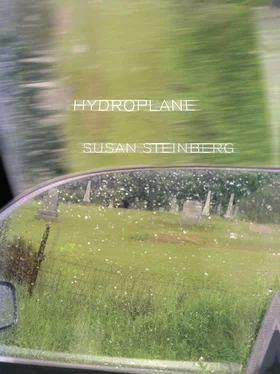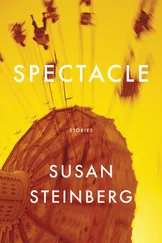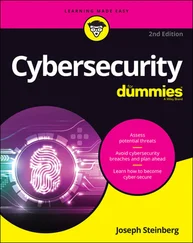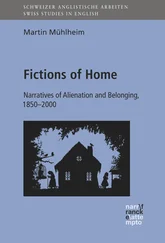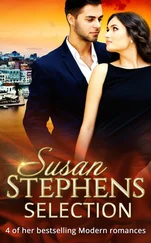Susan Steinberg - Hydroplane - Fictions
Здесь есть возможность читать онлайн «Susan Steinberg - Hydroplane - Fictions» весь текст электронной книги совершенно бесплатно (целиком полную версию без сокращений). В некоторых случаях можно слушать аудио, скачать через торрент в формате fb2 и присутствует краткое содержание. Год выпуска: 2006, Издательство: Fiction Collective 2, Жанр: Современная проза, на английском языке. Описание произведения, (предисловие) а так же отзывы посетителей доступны на портале библиотеки ЛибКат.
- Название:Hydroplane: Fictions
- Автор:
- Издательство:Fiction Collective 2
- Жанр:
- Год:2006
- ISBN:нет данных
- Рейтинг книги:4 / 5. Голосов: 1
-
Избранное:Добавить в избранное
- Отзывы:
-
Ваша оценка:
- 80
- 1
- 2
- 3
- 4
- 5
Hydroplane: Fictions: краткое содержание, описание и аннотация
Предлагаем к чтению аннотацию, описание, краткое содержание или предисловие (зависит от того, что написал сам автор книги «Hydroplane: Fictions»). Если вы не нашли необходимую информацию о книге — напишите в комментариях, мы постараемся отыскать её.
Hydroplane: Fictions — читать онлайн бесплатно полную книгу (весь текст) целиком
Ниже представлен текст книги, разбитый по страницам. Система сохранения места последней прочитанной страницы, позволяет с удобством читать онлайн бесплатно книгу «Hydroplane: Fictions», без необходимости каждый раз заново искать на чём Вы остановились. Поставьте закладку, и сможете в любой момент перейти на страницу, на которой закончили чтение.
Интервал:
Закладка:
To Sit, Unmoving
A man grabbed my father by his shirt. Then he punched my father's face.
My father fell backward into the street.
The man stooped in the street to my father. He pushed his fingers into my father's pants pocket. He fished out my father's wallet. Then he ran.
This was on the island. Puerto Rico. In the city. San Juan. On a street in the city. I don't know which. But the street was a low-lit street. And nothing was open on the low-lit streets that late at night but bars.
My father couldn't tell much of the man. There was a ski cap he said. A dark coat he said.
The fist before it reached his face.
What else, I said.
I mean I would have said.
I mean you would have said had you been sitting at the table in my father's office the following morning.
What I mean is had he been your father.
But there was nothing else.
My father fell backward into the street, his hands moving up to his eyes.
In the city were wild kids shooting up. Hookers poking from doorways.
This we heard from the man with the mustache who stood at the desk in the lobby.
The concierge, said my father to me and my brother, and he said it slow like, con-ci-erge.
The hotel limo wouldn't take us to the city. It would only take us to my father's factory and to other hotels that looked like ours. But my father said that this was stupid, that we were from a city and big deal this one he said.
I'll rent a sports car, he said. A red one, he said winking at my brother who lay on his side on the lobby floor.
In the city were wild dogs. Low-lit streets.
The concierge pulled his mustache in a way that looked like it should have hurt. But his mustache looked fake and I knew my brother would piss his pants if I said this.
You'll get stabbed in the city, the concierge said looking at me. He pulled on his mustache, and to my brother I said, Look, and pulled on the skin above my lip so it looked like it hurt. My brother laughed and rolled onto his back.
My father said, Stabbings. Big deal.
Stabbings, he said. We've got stabbings at home.
We had shootings as well. My brother and I heard shots at night from the park.
People walked over my brother and my brother tried to grab their legs.
My father said, We're from Bal-ti-more, and made his hand like he was holding a knife, ready to stab.
The concierge said, There are private restaurants here. In the good parts, he said. Keep to the private beaches, he said.
There was a Chinese restaurant in the hotel lobby and the inside looked like China. The Mexican one looked like Mexico and the music in each was different.
The lobby stores sold watches and gold chains and suntan oil. They sold American papers and American drinks. We liked the American drinks. We were Americans, and in America, or the States as my father told me and my brother to say, we drank regular drinks. We did everything regular in the States. We weren't stuck in the States in a dull hotel. We could walk after school to the city park. We could walk home alone at night.
My father threw some dollars to the desk. He said, Sports car. Red. My brother thought this was funny. This, because my brother's brain was wired wrong. He wasn't retarded. But his brain told him to do things other ways. Like sometimes it told him to laugh a lot. Sometimes it said to be silent. There were days we could poke and poke him in the ribs and he still wouldn't say one word. Those days he wore his headphones. He listened to metal and my father said, You'll rot your brain.
My father nudged my brother with his foot. He said, Get up, son, and my brother grabbed my father's leg.
The concierge spoke Spanish on the phone. We knew he was talking shit about us. We were white, as if you didn't know this. We were stupid white fuckers. We were rich white fucks.
This is not anger. I am not angry.
We sat nights, my father on dates, in the hotel room. There was nowhere else to go. We could play on the sidewalk outside the hotel just until it got dark. Just until the concierge shooed us back inside. At nights the lobby stores were closed. And we were not allowed on the beach. Dangerous kids hung out on the beach after dark. The concierge said, Do you want to get killed, and my brother made a gun with his hand and said, Pow. Nights we ordered room service and charged it to the room. There was American food on all the menus. We ordered from the American side. But it all tasted weird and Puerto Rican. The hamburgers came on regular bread. The potatoes were bananas. The TV shows were all in Spanish. Only some words were English. Chevrolet. Golden Skillet. My brother laughed at the cartoon commercials. There was one for chicken, one for something else. A drink.
To say my father was an inventor would be to lie. He mostly invented things that didn't work. In fact, only one thing worked, and you couldn't call someone an inventor when he invented only one thing that worked.
It would be to say I was a killer because I had one murderous moment one night with some kids in the park.
It would be to say my brother was a genius because he had one good idea, just one, once, slamming into the soft walls of his rotted brain.
The things my father built that didn't work were kept in boxes in a room in our house in the States. I never knew what these things were supposed to do, but there were wires and powders and pieces of foam in boxes, always, in this room in the house.
When he invented the one thing that worked, at last, a filter of all things, a filter that clicked into some kind of mask that workers in factories would strap to their faces in order to breathe, he took me and my brother to California. A celebration. My mother was dying and couldn't go. I mean to say she was literally dying. My father said, You could use the air, but she said, Go, to my father and went back to sleep.
My father took us to a restaurant that overlooked a city. Los Angeles, I think, but we were so far up on the top of a hill it didn't matter what city it was.
My father called the waitress darling. He held her by her wrist. He ordered a bottle of wine. Three glasses, he said and winked at my brother. He talked about things we didn't understand. He said his filter could take dust from the air. It could crush the dust to smaller bits. The waitress laughed and said, I don't get it. She walked away.
People want to breathe, my father said. I'm an inventor, for the love of God.
My brother drank his wine like it was water, and my father said, Easy, son.
He smacked the table. Do you hear me, he said.
My brother looked up.
Not you, said my father. Your sister, he said. She never listens.
Below us the city's white lights blinked. It could have been home how it looked. It could have been me and my brother dusted in sand, high up in the city park.
My father said the waitress was a dog.
My brother looked about to laugh.
A toast, said my father.
We raised our glasses.
To dust, he said.
Dust was mostly human skin. I learned this in school.
My brother barked at the waitress.
My father touched our glasses with his glass.
When the man in the coat and cap ran off my father rose to his knees. He must have looked like he was praying. Or like he was drunk. Motionless, touching his bloody face. Struggling to stand while holding his nose. Then the blood between his fingers. Dirt on the knees of his pants.
No big deal, he said.
He could wash the pants.
And he had nothing in the wallet.
A couple bills, he said.
And the wallet was a cheap one bought on the island.
His license. No big deal.
You can replace a license, my father said. They give anyone a license on this backward island.
Even the ladies, said my father.
Читать дальшеИнтервал:
Закладка:
Похожие книги на «Hydroplane: Fictions»
Представляем Вашему вниманию похожие книги на «Hydroplane: Fictions» списком для выбора. Мы отобрали схожую по названию и смыслу литературу в надежде предоставить читателям больше вариантов отыскать новые, интересные, ещё непрочитанные произведения.
Обсуждение, отзывы о книге «Hydroplane: Fictions» и просто собственные мнения читателей. Оставьте ваши комментарии, напишите, что Вы думаете о произведении, его смысле или главных героях. Укажите что конкретно понравилось, а что нет, и почему Вы так считаете.
